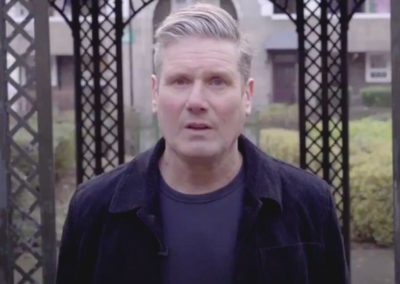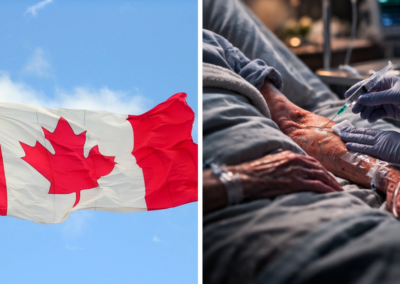The Deputy Prime Minister, Angela Rayner, and Education Secretary, Bridget Phillipson, have come out in opposition to the assisted suicide Bill to be voted on next week, joining a growing number of the Cabinet who have expressed discontent about the Bill.
Angela Rayner, the Deputy Prime Minister and Secretary of State for Housing, Communities and Local Government, has become the most senior Cabinet member to come out in opposition to Kim Leadbeater MP’s Terminally Ill Adults (End of Life) Bill published last week and subject to a vote on 29 November.
Rayner joins the Education Secretary who stated her continued opposition to making assisted suicide legal earlier today. Health Secretary Wes Streeting and Justice Secretary Shabana Mahmood have also been vocal in their opposition to the Bill, and Chief Secretary to the Treasury Darren Jones and Business Secretary Jonathan Reynolds have also indicated they will not vote in favour of the Bill either.
According to reports, an insider said that there is “No way will [Rayner] support this”.
When asked about her views on the assisted suicide Bill, Phillipson told BBC Radio 4’s Today programme, “Back in 2015, when this was last before Parliament, I voted against the measure and in that time I haven’t changed my mind”.
Phillipson refused to provide details regarding her opposition to assisted suicide suggesting only her scepticism about safeguards designed to protect people from being coerced into ending their own lives.
According to the Daily Mail source, the Chancellor of the Exchequer, Rachel Reeves, is privately “sceptical” of the assisted suicide Bill even while saying she had not made up her mind on it.
Implementing assisted suicide means cutting back on other services
The latest Cabinet opposition to the assisted suicide Bill comes just days after the Health Secretary ordered a review of the costs of implementing assisted suicide if Kim Leadbeater’s assisted suicide Bill is passed later this month, warning of a “chilling” scenario in which patients are pressured into ending their lives, and saying assisted suicide would “come at the expense of other choices”.
“I would hate for people to opt for assisted dying because they think they’re saving someone somewhere money, whether that’s relatives or the NHS. And I think that’s one of the issues that MPs are wrestling with as they decide how to cast their vote”, he said.
Speaking to reporters at the NHS Providers conference in Liverpool, when asked about Leadbeater’s Bill he said “Now that we’ve seen the bill published, I’ve asked my department to look at the costs that would be associated with providing a new service to enable assisted dying to go forward”.
“That work is now under way, so I can’t give you a precise figure today. You do touch on… the potential for cost savings if people choose to opt for assisted dying rather than stay in the care of providers or the NHS. I think that is a chilling slippery slope argument”.
Delivering assisted suicide would “come at the expense of other competing pressures and priorities”, he added.
Spokesperson for Right To Life UK, Catherine Robinson, said “Angela Rayner and Bridget Phillipson have now joined the two Ministers – Streeting and Mahmood – whose departments will be responsible for implementing the assisted suicide Bill if it is voted through in their opposition to the Bill. It is encouraging that these senior MPs are recognising just how dangerous the proposed assisted suicide legislation is”.
“Our culture should not be facilitating and encouraging suicide for a certain segment of the population. Instead, we should do all we can to provide assistance to live, not to die”.











